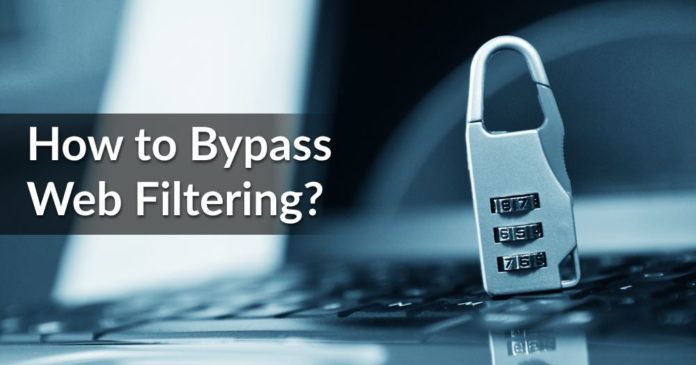
Bypassing web filtering is one of the most common use cases for VPNs, but it could also be done with a proxy service. At least in some places that aren’t that tech-savvy, like some schools, universities, workplaces, and even in some countries.
Places with better-trained IT staff can prevent the use of proxy services, and then you will have to use a VPN — which encrypts all the traffic to make it virtually impossible for admins to know you are doing online.
But we’re getting ahead of ourselves here, let’s first see who is using web filtering, shall we?
Common places using web filtering
There are many different actors that are relying on web filtering, including:
Countries
I guess we could start the list with China which is notorious for its Internet censorship, but there are other countries as well. North Korea is infamous for preventing many citizens from accessing the Internet in the first place, with those that have that benefit — which in most parts of the world is taken for granted — get an obscure version of the web without the websites that could potentially criticize the government. These would include major media outlets, social media sites like Facebook and Twitter, as well as YouTube, and so on. The not that drastic situation, but still with limited access to (social) media, is in many countries in the Middle East, Venezuela, and sometimes even Turkey and Russia.
Schools & universities
Your school wants you to study. Period. They don’t want you to spend time playing online games and cyberschmoozing on Facebook, Twitter, Snapchat and other such sites. And so, many on-campus IT admins make sure you get to only see the sites offering some educational value.
Workplaces
In a similar fashion, some workplaces have been limiting access to many websites to their employees. Instead of watching YouTube videos, employers would like to see their workforce focused on Excel spreadsheets, ERP & CRM systems that — the thinking is — have a positive impact on the bottom line.
Now that you know who the culprits of this conspiracy are, let’s see what you can do about it.
How to bypass web filters?
As we have briefly mentioned at the start of this article, you can either use a proxy service or a VPN.
The former won’t work in China as well as in any other location where advanced software is scanning what you’re doing online.
The situation is very different if you’re using a good VPN; it will hide your web whereabouts, making it impossible for any admin to know “what you did last summer.”
In order to bypass those filters, just select a server from your VPN app, click “connect” and you’re good to go. As far as IT admins are concerned, you are visiting something on an IP address of the server you have just selected. And since all traffic between your device (computer, smartphone, tablet, etc.) and that server is encrypted – no one will know which websites you’re visiting. Or the movies you’ve been watching.
A VPN offers much more…
The same capability that lets you bypass web filtering also helps you get more anonymity on the Internet so that the likes of Google and Facebook can’t track you across the Internet.
You see, these two giants have (JavaScript) codes placed across millions of websites (website owners themselves add them) so they could build a digital profile of every user and serve him/her with what their algorithms deem “appropriate” ads.
Also, with a VPN – you get to access popular streaming services such as Netflix, Disney+, HBO, Hulu and so on from all across the world; while your BitTorrent activity gets completely anonymous.
Finally, let’s not forget that because of all the encryption involved, it lets you safely use public Wi-Fi hotspots. With a VPN running on your devices, no one will be able to intercept your traffic. Or at least when they try to do so, they won’t get any meaningful information out of it.
So once again, you should get a VPN if you still don’t have it. Hop over to our page with Best of the Best VPNs and take it from there. We’re sure you’ll find a service for your unique needs. Good luck! 😉
